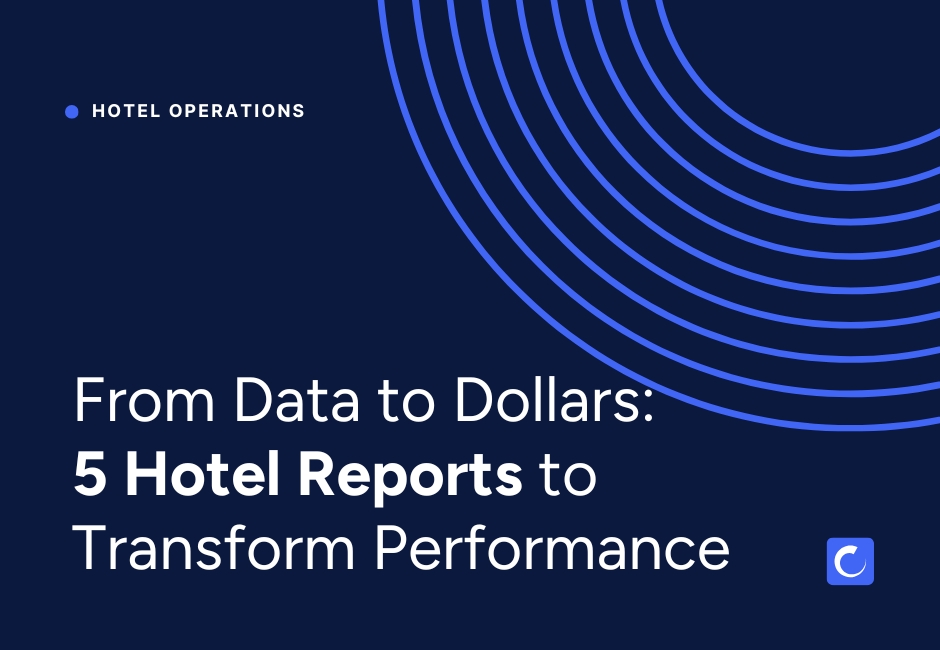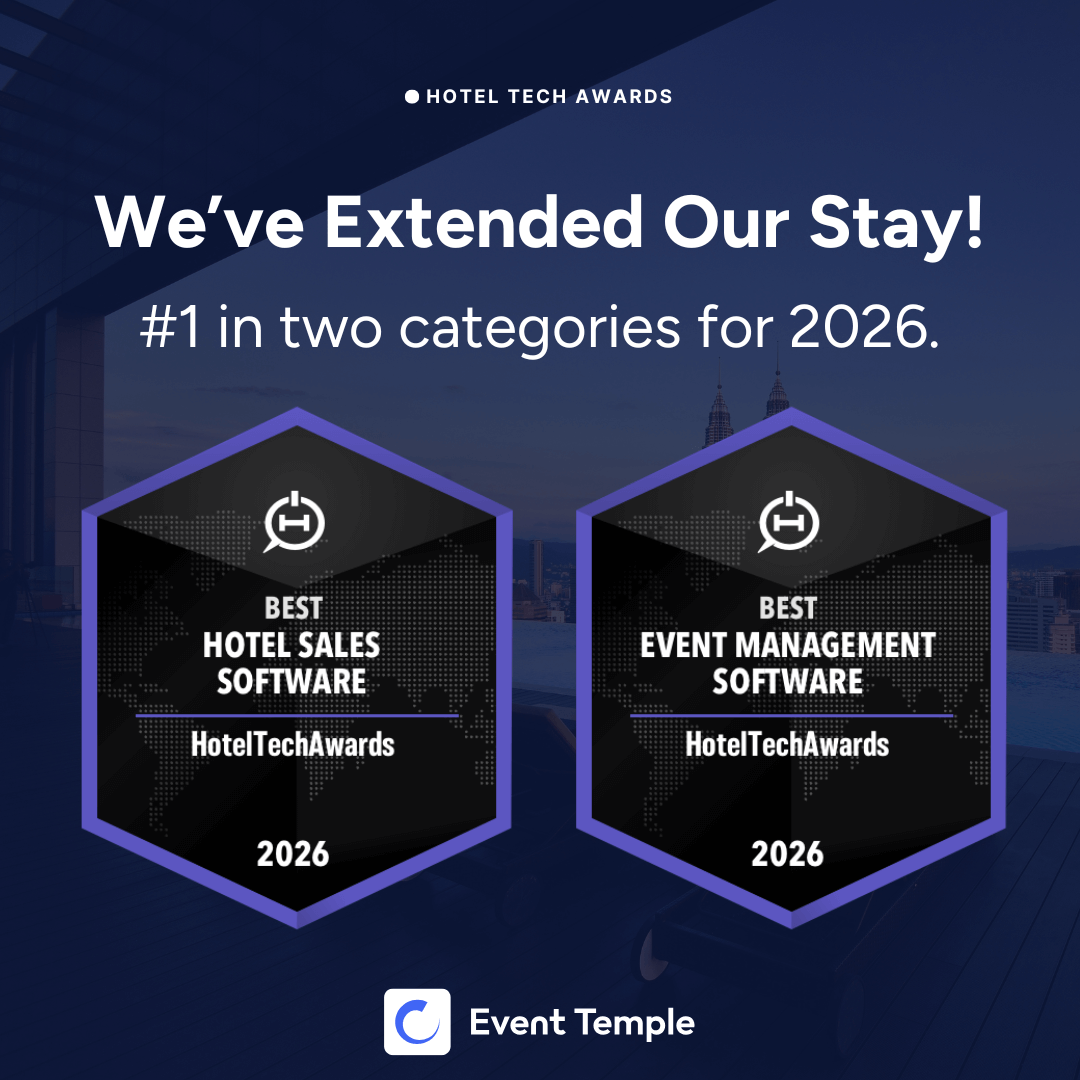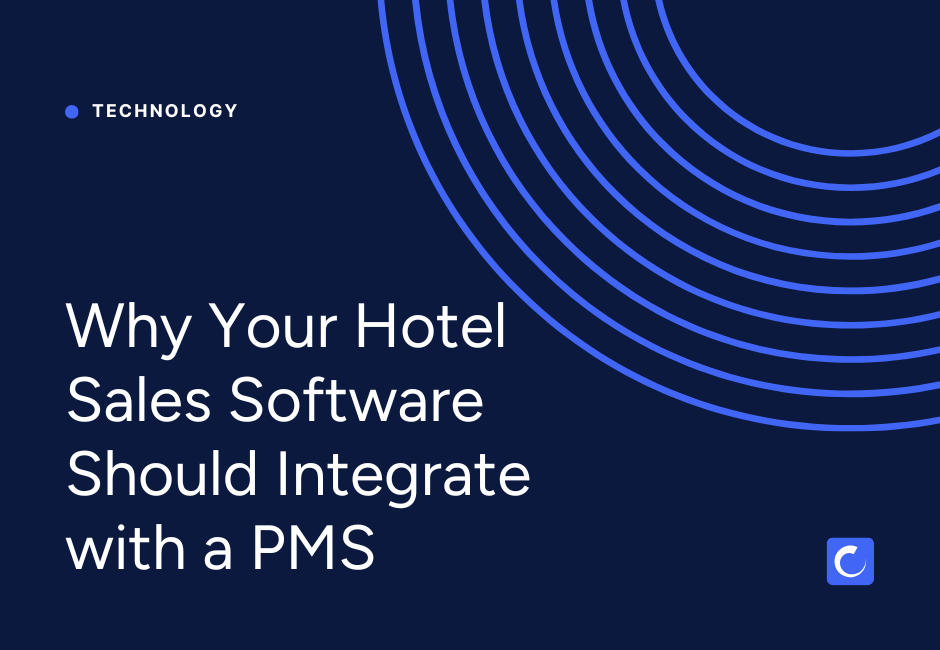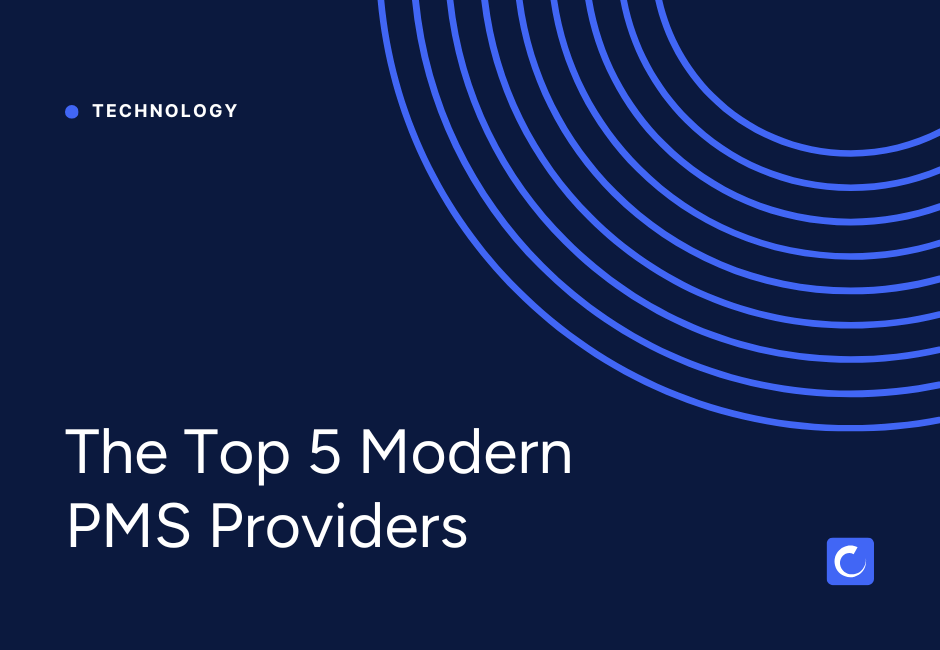
You’ve heard it before: “If you can’t track it, you can’t optimize it.”
Hotels generate thousands of data points every day, but most properties capture less than 10% of this valuable information — and even fewer actually use it to drive decisions and improve performance.
While effective reporting can differ depending on your unique business situation, there are some best practices that any property, chain, or management group can benefit from to help make sense of the plethora of data modern hoteliers have at their fingertips.
While we won’t go into the definitions of essential hotel metrics and KPIs here, we’ve narrowed down this list of five of our favorite reports for unlocking more data-driven a-ha! moments — and shared some common reporting pitfalls to watch out for.
If you’re working in hospitality, events, or group sales, here's what you should be tracking — and what to do with the insights.
Start With These Five Mission-Critical Reports
Before diving into complex analytics dashboards or AI-based forecasting tools, it’s important to first master these foundational reports. Each one offers clear, actionable insight and has a direct line to improved performance and profitability.
1. Daily Flash Report
The Daily Flash Report is your operations heartbeat — a high-level summary of everything that happened yesterday and what’s on deck. It brings together financials, events, and sales data in one place so everyone starts the day aligned.
What to include:
- Yesterday's revenue by department (Rooms, F&B, Events, Other)
- Today’s arrivals, departures, and event schedule with details
- Current occupancy, ADR, and space utilization
- Event count with attendance, menu items, and special requirements
- Month-to-date pace vs. same period last year
Pro tips:
- Schedule your Daily Flash to auto-generate by 6 AM and distribute to key stakeholders.
- Look for flexible report templates for top use cases like “Daily Events with Details” or “Booking Financials Report” in your hotel CRM and reporting software.
- The best systems allow for raw data exports and filters, so you can dig deeper into trends when needed.
Potential data-driven action triggers:
- If space utilization drops below 65% for next week → Launch flash promotions or targeted outbound outreach.
- If payment deposits lag event dates by 7+ days → Trigger follow-ups or accounts receivable reminders.
- If menu or setup details are missing within 48 hours of event → Alert operations for proactive planning.
2. Lost Business Tracker
Want to win more? First, understand why you lose. A Lost Business Tracker sheds light on missed opportunities and helps shape pricing, messaging, and service improvements based on actual outcomes — not guesswork.
Essential data points:
- Specific reason for loss (e.g., Price, Availability, Chose Competitor, Poor Fit)
- Competitor name (if known)
- Estimated value of lost opportunity
- Lead source and date of initial inquiry
- Number of interactions before the deal was lost
Setup process:
- Customize your lost reasons: e.g., “Price – Too High,” “No Availability – Specific Date,” “Chose Competitor – [Name],” “Ghosted After X Attempts,” etc.
- Make selecting a lost reason mandatory when closing out a deal
- Use visual reporting tools (e.g., Booking Graphs in Event Temple) to display trends by month
- Export data weekly to assess loss trends and identify recovery opportunities
What to do with the data:
- If “Price – Too High” exceeds 30% → Analyze which accounts still convert despite higher rates to sharpen value messaging.
- If specific dates have repeated availability losses → Revisit hold policies or inventory management practices.
- Track win/loss ratios by lead source → Redirect marketing spend toward higher-performing channels.
3. Booking Pace & Velocity Analysis
Booking pace reports compare current performance to past trends and future targets, helping identify gaps early — before they become revenue problems. Velocity tracking gives insight into how quickly deals are closing.
Critical metrics to monitor:
For Events:
- Pace vs. budget and prior year
- Bookings by lead time (0–30, 31–60, 61–90, 90+ days)
- Sales productivity per team member
- Pickup and cancellation patterns by event type
For Groups:
- Room block performance vs. contracted numbers
- Pickup pace by account segment (Corporate, SMERF, etc.)
- Average rate realization by booking window
Implementation tactics:
- Set up reports comparing 30, 60, and 90-day windows against budget and historical benchmarks.
- If pace lags by 20%+, dig into whether it’s due to demand softness or conversion inefficiency.
- Filter bookings by "Days Until Event" to identify velocity changes.
Revenue optimization triggers:
- If pace is soft but lead volume is healthy → Review qualification and follow-up processes.
- If corporate bookings dip → Investigate delayed response times or lost RFPs.
- If short-term velocity increases suddenly → Review staffing capacity and upsell strategies.
4. Source & Channel Performance Analysis
When it comes to digital marketing for hotels, you can’t optimize marketing spend without knowing which sources drive not just volume, but value. Go beyond basic lead attribution by tying performance to outcomes like revenue and conversion.
Key metrics to track:
- Revenue per lead by source (not just inquiry volume)
- Customer lifetime value by channel
- Cost per acquisition (including labor hours)
- Email open/click rates and conversions
Advanced tracking setup:
- Define granular source categories: “Google Ads – Weddings,” “Email – Q4 Offers,” “Referral – DMO”
- Make lead source a required field in your CRM; audit weekly for accuracy
- Combine reports to compare inquiry volume, booking value, and lead quality by source
- Track email metrics — aim for 25%+ open rate and clear CTAs that link to trackable booking actions
Example ROI analysis:
- Digital ad campaign: 40 inquiries → $200,000 in bookings → $5,000 ad spend = 40:1 ROI
- Print ad: 5 inquiries → $10,000 in bookings → $3,000 cost = 3.3:1 ROI
→ Shift budget to top performers.
If you're aiming to modernize your approach to prospecting in the age of AI search and shifting buyer behavior, check out our free webinar to learn the latest playbook for lead generation.

5. Team Performance Intelligence
Behind every number is a person — and empowering your sales team starts with transparency. Team performance reports drive accountability, uncover coaching opportunities, and can help establish a supportive and performance-driven culture.
Multi-dimensional performance tracking:
- Lead response time by time of day
- Conversion rates by pipeline stage
- Activity vs. outcome analysis
- Task completion consistency
- Revenue and pipeline value per rep
Building accountability without micromanaging:
- Display team metrics in a daily-updated dashboard
- Balance leading indicators (calls, tasks, outreach) with lagging indicators (bookings, revenue)
- Use task tracking to ensure 15–20 meaningful activities per seller per day
- Identify and document successful tactics from top performers to build training SOPs
Performance insights to action:
- High activity, low conversion? → Review communication quality, call recordings, emails and templates.
- Low activity, high conversion? → Optimize the lead qualification funnel to avoid missed opportunities.
- Low task completion? → Audit for process friction or unclear expectations.
Common Technical Pitfalls and Solutions
Even the best reports are only as good as the systems behind them.
Avoid these common traps:
Inconsistent Data Entry
Solution: Use dropdowns and standardized fields wherever possible. Make key fields required. Conduct monthly audits to ensure consistency.
Report Overload
Solution: Follow a “one report = one question” approach. Archive unused reports. Prioritize reports that drive action.
Manual Report Creation
Solution: Automate with modern hotel reporting tools. Even partial automation saves time and improves reliability.
Siloed Systems
Solution: Use integrations (native APIs, tools like Zapier) to sync CRM, PMS, and other platforms — creating a single source of truth.
Make Your Hotel Reporting Work For You
The right hotel reporting software makes your life easier — but the real results come when you embed data into your daily decision-making culture.
Focus on actionable insights, automate what you can, and let data guide your hotel’s path to increased revenue and better performance.
Want to see how Event Temple helps hotels centralize data, streamline operations, and generate more revenue with less manual effort? Book a personalized walkthrough today.



